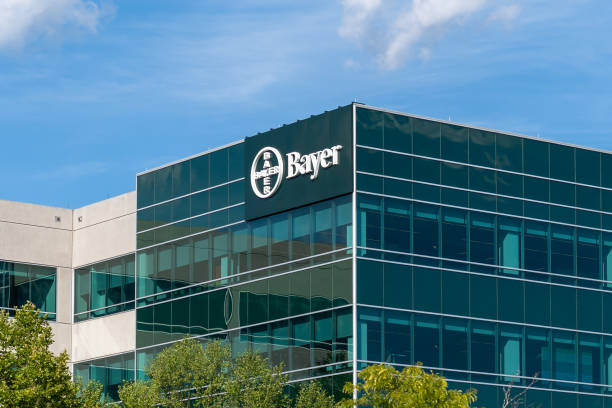
Bayer’s Pharma Growth Strategy Advances as Pipeline Progresses
At the 43rd J.P. Morgan Healthcare Conference in San Francisco, Bayer AG revealed significant advancements in its pharmaceutical growth strategy, announcing multiple filings for key drugs such as darolutamide, finerenone, acoramidis, and elinzanetant, among others. The company’s progress underlines its commitment to fulfilling ambitious goals despite challenges, and underscores the increasing value of its pipeline, particularly in advancing breakthrough innovations. According to Stefan Oelrich, a board member of Bayer AG and president of its Pharmaceuticals Division, the company’s new operating model is a crucial factor driving both growth and efficiency.
Strengthening Leadership in Prostate Cancer
Bayer’s Pharma continues to strengthen its position in the prostate cancer treatment space, particularly with its drug darolutamide, marketed under the brand name Nubeqa™. Darolutamide is poised to launch its third indication in 2025, with strong trial data supporting its use in combination with androgen deprivation therapy (ADT) for metastatic hormone-sensitive prostate cancer. The ARANOTE trial provided solid evidence showing that darolutamide, with or without chemotherapy, significantly improved outcomes for patients. Following these successful trials, Bayer’s Pharma submitted a new application to China’s National Medical Products Administration (NMPA) for this third indication, joining similar submissions in the U.S. and Europe earlier in 2024.

The drug has already achieved blockbuster status, surpassing one billion euros in annual sales as of September 2024. In addition, Nubeqa has rapidly become the fastest-growing androgen receptor inhibitor in the U.S., with over 100,000 patients treated worldwide by the end of 2024. These developments underline Bayer’s dedication to advancing treatment options for patients with prostate cancer.
Expanding Cardiovascular Impact
Bayer is also focusing on cardiovascular diseases, particularly through the expansion of its drug finerenone, marketed as Kerendia™. Recently,Bayer’s Pharma submitted a supplemental new drug application (sNDA) to both the U.S. Food and Drug Administration (FDA) and China’s NMPA to expand Kerendia’s use to treat heart failure. This move is based on robust data from the FINEARTS-HF Phase III trial, where finerenone demonstrated statistically significant cardiovascular benefits in patients with heart failure and a left ventricular ejection fraction of greater than or equal to 40%. The ongoing regulatory reviews of finerenone hold great promise for making it a cornerstone therapy for both kidney disease and heart failure patients. If approved, a market launch could occur by the end of 2025.
Significant Developments in Rare Diseases and Women’s Health
In the realm of rare diseases, Bayer’s Pharma is anticipating a 2025 approval for acoramidis, a treatment for transthyretin amyloid cardiomyopathy (ATTR-CM). The drug has shown promising results, including near-complete stabilization of transthyretin, and received a positive opinion from the European Medicines Agency’s Committee for Medicinal Products for Human Use (CHMP) in December 2024.
Women’s healthcare is another area where Bayer’s Pharma has achieved significant clinical milestones. Elinzanetant, a treatment for vasomotor symptoms (VMS), has recently delivered promising results from its Phase III trials, including the OASIS 1-3 studies. The OASIS 4 trial, which focused on the treatment of VMS caused by adjuvant endocrine therapy in women at high risk for breast cancer, met all its primary and secondary endpoints. Elinzanetant significantly reduced the frequency and severity of moderate to severe VMS, improved sleep disturbances, and enhanced quality of life. Regulatory submissions for elinzanetant are already underway, and Bayer expects a fast market penetration once approved, leveraging its strong presence in women’s healthcare.
Ophthalmology and Radiology Advances
In the field of ophthalmology, Bayer is positioning Eylea 8mg (aflibercept 8 mg) as a potential new standard of care for exudative retinal diseases. The Phase III QUASAR study has shown that this new formulation of Eylea is non-inferior to the standard treatment, Eylea 2 mg, for patients with macular edema following retinal vein occlusion (RVO). Eylea 8mg, when administered every eight weeks after the initial monthly doses, demonstrated promising visual acuity gains, marking a potential shift in retinal disease treatment.
In radiology, Bayer is progressing its Phase III QUANTI clinical development program, which involves innovative gadolinium-based MRI contrast agents. The investigational agent gadoquatrane has shown success in meeting primary and secondary endpoints, including demonstrating diagnostic efficacy and safety at a 60% lower gadolinium dose compared to other contrast agents. This achievement highlights Bayer’s leadership in medical imaging and contrast agent development.
Gene Therapy and Neurology Advancements
Bayer’s commitment to innovation extends to gene therapy, particularly in neurology. The company has made important strides with its cell and gene therapy platform, particularly in Parkinson’s disease. Bemdaneprocel, an investigational stem cell-based therapy, has shown promise in early trials, and Bayer plans to advance it to Phase III trials based on positive results from the Phase I exPDite trial. The FDA granted bemdaneprocel Regenerative Medicine Advanced Therapy (RMAT) designation, signaling its potential as a breakthrough treatment for Parkinson’s.
Additionally, AB-1005, an investigational AAV-based gene therapy, is making significant progress in its Phase II clinical trial (REGENERATE-PD). AB-1005 delivers the human glial cell line-derived neurotrophic factor (GDNF) to the brain and has shown potential in protecting and restoring dopamine-generating neurons. With Fast Track and Innovation Passport designations from the FDA and the UK’s MHRA, AB-1005 could provide much-needed solutions for Parkinson’s patients and addresses significant unmet needs in this area.
Oncology Pipeline and Precision Medicine
Oncology remains a core focus for Bayer, particularly in precision oncology. Through the acquisition of Tavros Therapeutics, Bayer is advancing its chemoproteomics platform, which aims to target previously undruggable targets with precision small-molecule therapeutics. Bayer’s portfolio includes Phase I trials for oral KEAP1 activators and STAT3 inhibitors targeting solid and hematologic malignancies, as well as a RAS-PIK3CA program for RAS-driven cancers.
Another promising oncology development is BAY 2927088, an oral tyrosine kinase inhibitor targeting HER2 mutations in non-small cell lung cancer (NSCLC). Early Phase I/II results have been encouraging, and the drug has received Breakthrough Therapy Designations from both the FDA and China’s CDE. Bayer is also investigating BAY 3498264, an oral selective SOS1 inhibitor, in metastatic cancer patients with KRAS G12C mutations, further expanding its oncology pipeline.
Targeted Radionuclide Therapy (TRT) is also a major area of focus for Bayer’s oncology research. With over 10 years of experience in targeted alpha therapy for prostate cancer, Bayer is advancing two promising candidates—225Ac-pelgifatamab and 225Ac-PSMA-Trillium—in Phase I clinical trials. These treatments target PSMA, a protein found in prostate cancer cells, and could offer new options for patients with advanced metastatic castration-resistant prostate cancer (mCRPC).
Progress in Cardiovascular Disease Research
In cardiovascular disease, Bayer is making notable strides with its investigational soluble guanylate cyclase (sGC) activator, BAY3283142, in chronic kidney disease (CKD) patients. The Phase II study aims to assess the potential of this novel class of drug to improve conditions related to oxidative stress, such as diabetic nephropathy. Additionally, Bayer is developing an anti-alpha2 antiplasmin antibody as a new thrombolytic agent, which could provide an alternative to traditional treatments for deep vein thrombosis without increasing the risk of bleeding.





